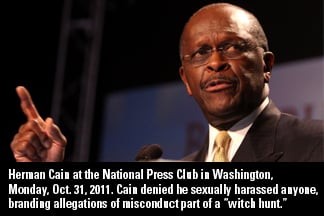 Several years ago, I was the agent handling an employment-related charge of sexual harassment that was filed against a high-ranking officer of a financial institution, who also was a prominent member of the community.
Several years ago, I was the agent handling an employment-related charge of sexual harassment that was filed against a high-ranking officer of a financial institution, who also was a prominent member of the community.
Although the claim was very tame in comparison with headlines of today, people who knew this man could not imagine they were true. Fortunately for the defendant, his company carried an employment practices liability (EPLI) policy that defended the case. Had he been found to have committed a wrongful act, the policy would also have paid the damages.
Many companies, however, do not purchase EPLI coverage. When faced with a similar situation, the alleged harasser and/or the employer may be on the hook for defense and any damages. But are there other insurance avenues that should be considered for defense costs when EPLI is not available?
Recommended For You
Want to continue reading?
Become a Free PropertyCasualty360 Digital Reader
Your access to unlimited PropertyCasualty360 content isn’t changing.
Once you are an ALM digital member, you’ll receive:
- Breaking insurance news and analysis, on-site and via our newsletters and custom alerts
- Weekly Insurance Speak podcast featuring exclusive interviews with industry leaders
- Educational webcasts, white papers, and ebooks from industry thought leaders
- Critical converage of the employee benefits and financial advisory markets on our other ALM sites, BenefitsPRO and ThinkAdvisor
Already have an account? Sign In Now
© Touchpoint Markets, All Rights Reserved. Request academic re-use from www.copyright.com. All other uses, submit a request to [email protected]. For more inforrmation visit Asset & Logo Licensing.







